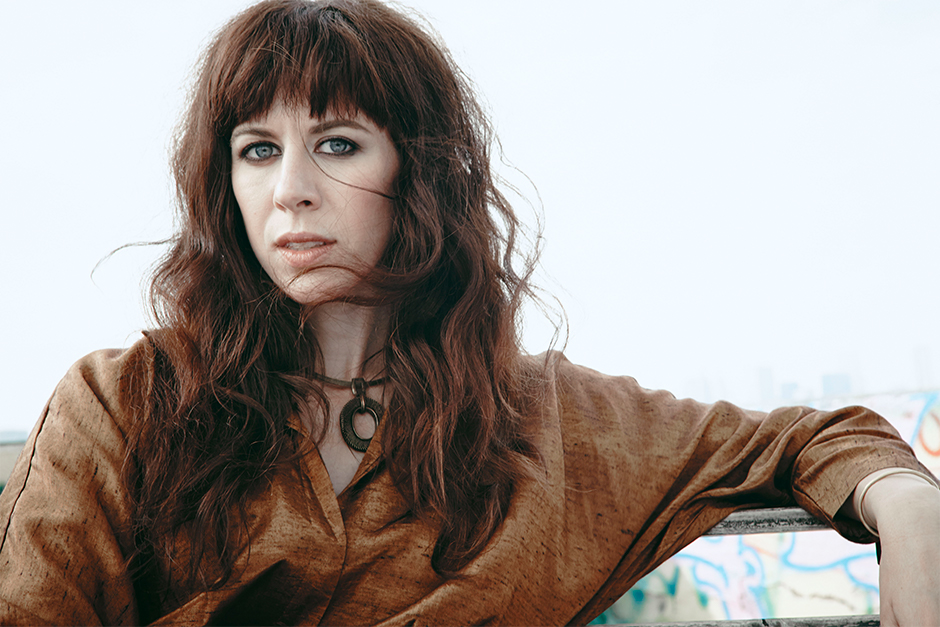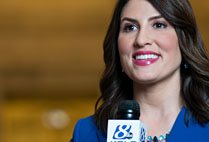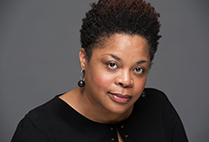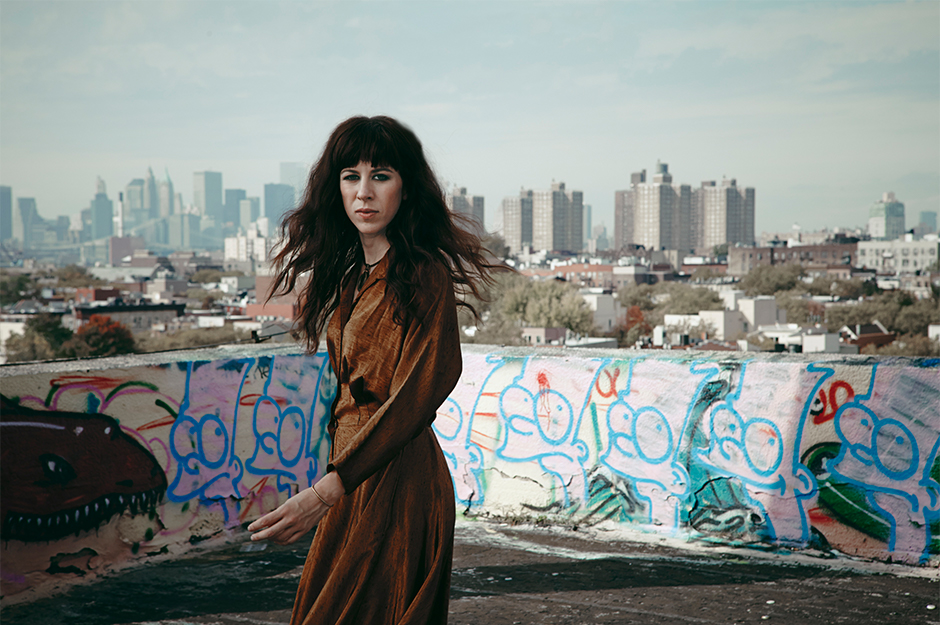Opera could only sound like this in America. In Missy Mazzoli’s Proving Up, the chamber orchestra plays harmonicas to conjure a rolling prairie mist and strikes—literally, with mallets—eight acoustic guitars hanging on a wall to evoke what she calls a “banged up and beat up” journey across the American heartland.
The opera, premiered by the Washington National Opera in January 2018, follows homesteaders trying to stake their claim to land—prove up—in 19th-century Nebraska. It’s a hardscrabble life and the 70-minute production is unflinching in its portrayal of existence on the open plains, of the struggle to cultivate the American dream on parched land. Mazzoli (CFA’02) says she even took inspiration from early 20th-century fiddle tunes when writing the opera’s music.
“I think my musical language bridges the familiar and the strange,” says Mazzoli, who’s working on pieces for Opera Philadelphia and the National Ballet of Canada, but has also composed music for the screen, including for the Amazon series Mozart in the Jungle. “There are chords, rhythms, and melodies that will be very accessible, but presented in a context that is new and sometimes experimental and sometimes quite jarring.”

“I think my musical language bridges the familiar and the strange,” says Mazzoli.
Mazzoli and librettist Royce Vavrek, who were commissioned by the Washington National Opera, Opera Omaha, and the Miller Theatre at Columbia University, adapted Proving Up from Karen Russell’s short story of the same name. It’s Mazzoli’s third opera after 2016’s Breaking the Waves (the New York Times called it “ambitious, accomplished, dramatically direct”) and 2012’s Song from the Uproar (“seductive, meditative, spiritually elusive, and subversive,” according to the Los Angeles Times).
The Washington Post‘s Anne Midgette, who ranked Mazzoli in her list of the top 35 women composers in classical music in 2017, called Proving Up “an opera for our time.”
“Even though it takes place in 1870, it feels very new, especially with what’s going on in our country right now,” says Mazzoli. “There’s a lot of discussion about the American dream: what does it mean, who is it for, is it really accessible to anyone, and is this sort of rags-to-riches mentality that we’ve grown up with accurate? What happens to Americans who do everything ‘right,’ but still fail—and still disappear from history?”















































Related Stories
Opera Festival Features Three Rare Gems at BU Theatre
CFA alum to appear with Odyssey Opera
CFA Alum Hailed as a “Postmillennial Mozart”
Opera Song from the Uproar has garnered five-star reviews
CFA Stages Britten’s A Midsummer Night’s Dream
An evening of opera magic and romance
Post Your Comment